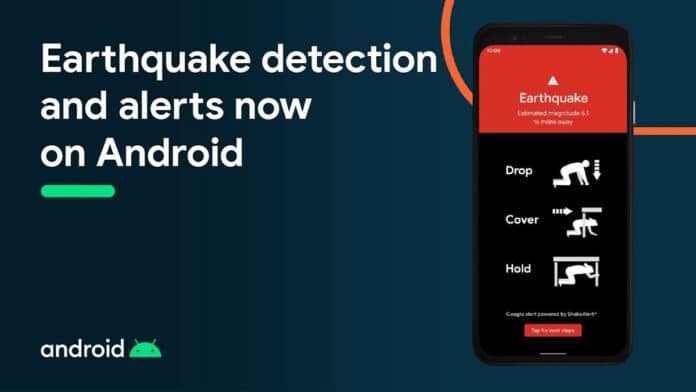When two deadly earthquakes, 7.8 and 7.5 in magnitude, struck south-eastern Turkey in the early morning of February 6, 2023, millions of people were asleep. At 4:17 a.m., buildings crumbled, families were trapped, and more than 55,000 lives were lost, and more than 100,000 were injured in one of the worst natural disasters in recent history. In the wake of such catastrophic loss, one glaring question arose: where was the warning?
While the ground was shaking, Google’s Android Earthquake Alerts System (AEA) — a global early warning tool in quake-prone areas — was up and running. But it grossly underestimated the scale of the first 7.8 magnitude quake. The system thought it was a 4.5 at first, not realizing the real danger until it was far too late.
What Went Wrong?
The first earthquake, a 7.8 magnitude event near Pazarck, was misjudged by AEA as a minor 4.5 on the moment magnitude scale (MMS) at 7.1 seconds after origin time. The magnitude estimate later peaked at just 4.9—far below the actual intensity.
As a result of this early miscalculation, only 469 “Take Action” alerts—AEA’s most urgent and intrusive notification—were triggered for the first 7.8 magnitude quake. These alerts override Do Not Disturb modes and trigger loud alarms designed to wake users. An estimated 10 million others, who could have benefited from those alerts, did not receive the critical warning in time.
Meanwhile, 500,000 users within a 64 radius received the less urgent “Be Aware” notification, which does not override ‘Do Not Disturb’ settings and is intended for “light shaking.” This alert type is insufficient for quakes of this magnitude, especially when the tremor struck at 4:17 a.m.
The Aftershock Fared Better — But Not Enough
The situation worsened with the second major quake a few hours later, a 7.5 magnitude aftershock later that same day. While the AEA system responded slightly better this time, issuing over 8,100 “Take Action” alerts and nearly four million “Be Aware” notifications with warnings ranging from seconds to over one minute. Still, many experts believe that the response was inadequate given the intensity and damage of the aftershock.
Flawed Parameters, Delayed Warnings
The issue? Google’s detection algorithm simply didn’t gather enough data fast enough. At the heart of the failure was AEA’s then-default 10-second monitoring window, which was too short to collect the seismic data needed for accurate magnitude modeling during large-magnitude quakes like these.
Additionally, phones contributing noisy or delayed data further compromised accuracy, slowing the system down even more. Google later admitted to these flaws and said, “We continue to improve the system based on what we learn in each earthquake.”
Fixing the System After the Fact
In the aftermath, Google scientists tweaked its detection algorithms and performed simulated tests with the new algorithms. The search giant says that with its updated detection algorithm, the same 7.8 magnitude quake triggers an initial estimate of 4.6 in 6.3 seconds, rising to 7.4 within 24 seconds.
This would have issued around “Take Action” alerts to 10 million users and “Be Aware” notifications to 67 million, with up to 2.5 minutes of warning. The updated system now has extended the time the algorithm monitors for quake data from 10 to 30 seconds, improved how the system filters out “noisy” phone data, and adjusted alert thresholds.
“Every earthquake early warning system grapples with the same challenge – tuning algorithms for large magnitude events,” Google said.
An Assistive Tool, Not a Replacement
Google maintains that AEA is meant to be a supplemental tool, not a replacement for government-run seismic alert systems. Despite its high-profile failure in Turkey, the alert system, which uses accelerometer data from Android phones to triangulate quake activity, has reportedly sent notifications in 98 countries.
Despite its high-profile failure in Turkey, post-event surveys showed 85% of recipients found alerts helpful, and over 80% said they would trust the system more in the future.
Yet for the millions affected by the 2023 Turkey disaster, those critical seconds of warning never arrived when they mattered the most.

